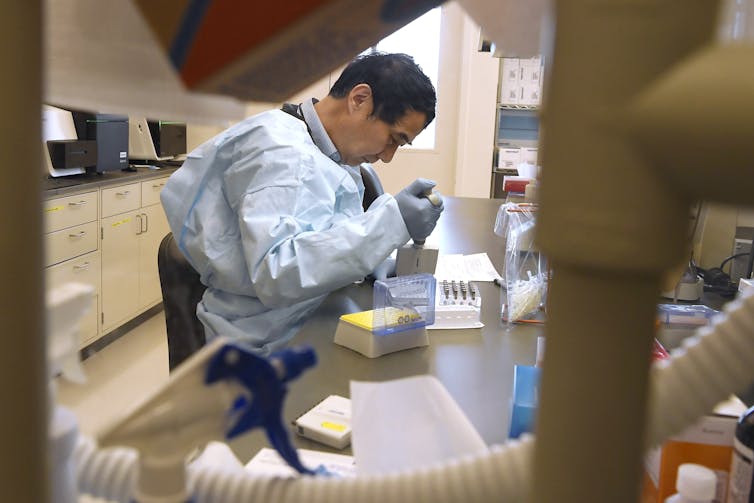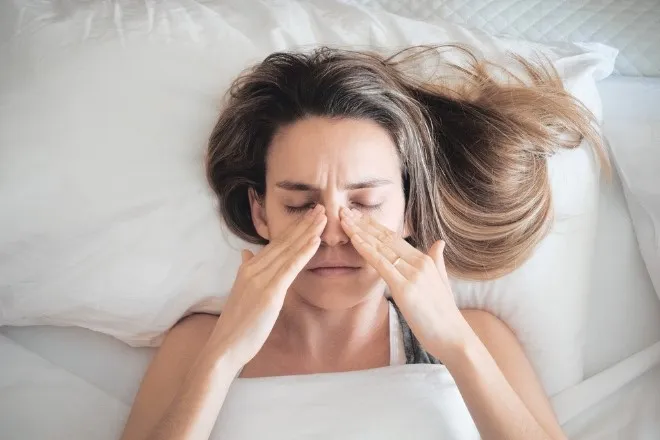
Americans still trust doctors and scientists during a public health crisis

Ellen Peters, University of Oregon; Brittany Shoots-Reinhard, The Ohio State University; Michael Silverstein, University of Oregon, and Raleigh Goodwin, University of Oregon
The coronavirus epidemic is a health crisis that threatens Americans’ quality of life. Who do Americans trust to lead them through it?
The public opinion firm YouGov has reported that public trust of scientists fell from 2013 to 2017. But trust in scientists and the benefits of science remains high, according to statistics from the National Science Foundation.
We were interested in whether that trust persisted in the midst of the coronavirus epidemic. From Feb. 17 through Feb. 25, we asked 1,279 Americans whether they were liberal or conservative and how much they trusted different people and groups to reduce the risk of a coronavirus epidemic in the U.S.
Not surprisingly, people’s politics predicted their trust in politicians. Among the 500 conservatives in our sample, 64% reported moderate to extreme trust in President Donald Trump. Less than 10% of the 779 liberals reported similar trust in him.
However, politics did not predict who was most trusted. Across the political spectrum, the most trusted were the Centers for Disease Control and Prevention and doctors.
In fact, 75% of liberals and 80% of conservatives reported moderate to extreme levels of trust in the CDC to reduce U.S. risk of a coronavirus epidemic. Seventy-seven percent of liberals and 80% of conservatives also trusted doctors and other clinicians.
These groups likely earned the public’s trust by providing information that mattered in comprehensible and accessible ways.
These findings are important because messages from trusted sources are typically more persuasive. People follow recommendations more when they come from a trusted person or group. As a result, when someone you trust tells you to avoid close contact with sick people, not touch your face, and cover your coughs and sneezes with a tissue, you are more likely to do so. This suggests that getting messages from nonpartisan experts is more likely to help reduce U.S. and global disease spread.
Our findings also indicated that most people trust their ability to reduce their own coronavirus risk. But they need accurate and actionable information to know how. Getting messages from trusted sources likely will have a bigger impact, but the federal government wants control over coronavirus messages sent out by health officials.
Other individuals and groups were less trusted than the CDC and doctors. We plan to monitor changes in trustworthiness for these individuals and groups and others over time. We expect perceived trust to change as the situation changes.
With this emerging threat, all Americans need the highest quality science transmitted by trusted sources. Doing so will encourage healthier decisions as the number of cases around the world continues to rise.
[Deep knowledge, daily. Sign up for The Conversation’s newsletter.]![]()
Ellen Peters, Director, Center for Science Communication Research, University of Oregon; Brittany Shoots-Reinhard, Research Assistant Professor of Psychology, The Ohio State University; Michael Silverstein, Doctoral Student in Psychology, University of Oregon, and Raleigh Goodwin, Doctoral Student in Psychology, University of Oregon
This article is republished from The Conversation under a Creative Commons license. Read the original article.
















